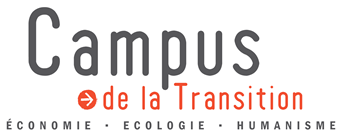Tackling energy insecurity – Changing behaviors
The vast majority of modern heating systems in the Western world are designed to heat all the spaces uniformly and continuously, in order to guarantee maximum comfort for users.
However, the notion of thermal comfort is far more complex than a simple temperature measurement.
Since 2021, an action research project has been conducted at the Campus de la Transition on the subject of energy sobriety.
These experiments are a way for the Campus de la Transition to fight against fuel poverty and the energy exclusion that the most vulnerable have to endure today. They address the question of a fairer distribution of resources, in the quest for a mutually supportive way of life that respects living beings and planetary boundaries.
Aware of the challenges of the energy transition, concerned about the availability of resources, and eager to question their habits, Campus residents chose to experiment with another way of living in winter in a poorly insulated castle: heating people rather than spaces. Solutions include thermal clothing, warm shoes, double-quilts, blankets and auxiliary heaters.
Beyond lowering radiator temperatures by several degrees, experience has shown that an approach based on energy sobriety can only be undertaken if it is properly organized.
Indeed, it is much easier to implement in a community than on an individual scale. It is complementary to, but different from, efficiency. Thermal comfort is a multidimensional concept that varies according to people, places and situations. It is essential to take account of how residents feel, and to adopt a participatory approach.
The project is coordinated by a multi-disciplinary team of researchers. A research paper that traces the history of collective cold management at the Campus de la Transition was published in 2023, “Moins chauffer sans s’échauffer”, available here: https://campus-transition.org/wp-content/uploads/2023/12/ET-2023-04.pdf
